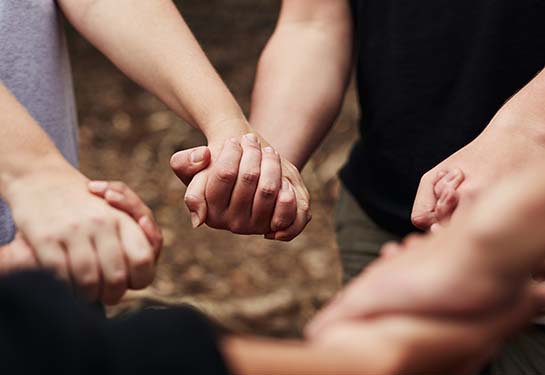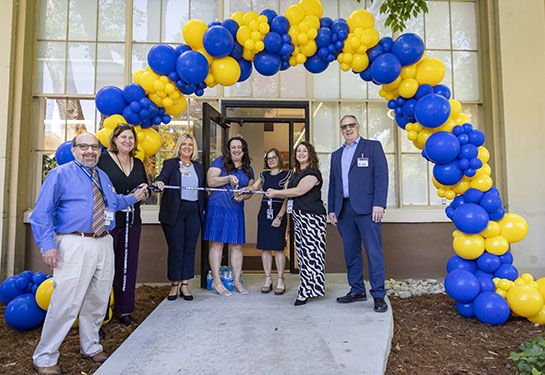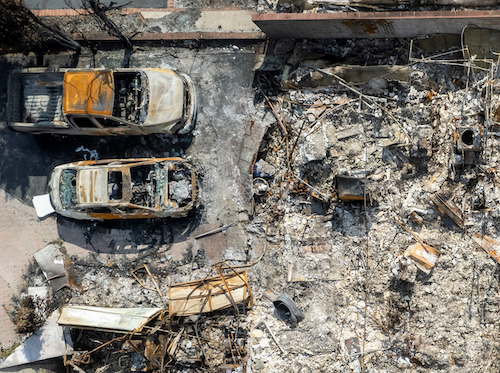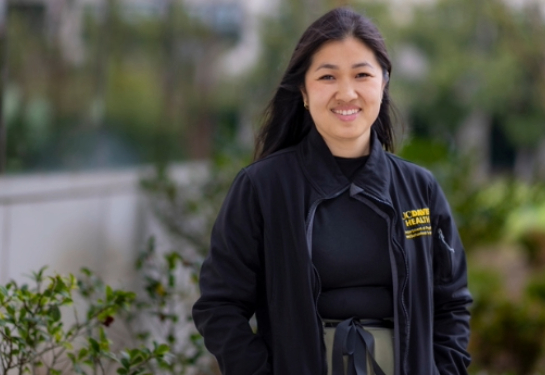Coping with the trauma and tragedy of mass shootings
Suggestions for helping yourself and others, and breaking the cycle of violence
On May 24, 19 children and two teachers at Robb Elementary School in Uvalde, Texas, were killed in a horrific mass shooting. Ten days earlier, 10 people were killed in a mass shooting in Buffalo, New York. A month earlier, six people were killed and 12 injured in a mass shooting in downtown Sacramento. These mass shootings have a profound impact on the communities where they happen and on the country as a whole, leading to widespread sorrow, grief, fear and anger.
Caroline Giroux is a psychiatrist at UC Davis Health who specializes in trauma and how it affects mental and physical health. Below, she offers suggestions for how people can cope with the mental health impacts of these terrible tragedies and gives suggestions for channeling negative feelings into positive change.
People have many reactions to tragedies
Countless people are sad and angry about the death of these children. Other feelings or reactions may include shock, numbness — including from extreme shock or desensitization after so many events — disbelief, helplessness, despair, and avoidance of the media, to name just a few.
Tragic events far away can impact us emotionally
Indirect trauma can affect us, even if it did not happen to us directly. Hearing about it in the news can also be a trigger and generate symptoms that fall into the category of post-traumatic stress disorder, such as flashbacks, nightmares, hypervigilance, depression, irritability, panic symptoms, and more. It is important not to hesitate and reach out to one’s supportive network or health professionals to get support.
Trauma can affect physical health
Trauma affects the whole person, so things like indigestion, muscle tension, insomnia, and headaches are totally normal. It is important to know that everyone reacts differently, and there is no right or wrong when it comes to affliction from human tragedy.
Examples of self-care
Self-care can improve one’s physical and mental well-being. Examples of self-care activities include: ensuring good sleep, a healthy diet, organizing a healing circle, talking to a friend, going on a walk, meditating, using artistic self-expression, and doing something positive and supportive for a child or adult in need (helping a neighbor with homework, for example, or volunteering at a food bank). The Centers for Disease Control has online resources for mental health, including self-care, coping with stress, helping children cope and grief and loss.
Helping others
During a tragedy, offering support to those involved is a priority. When encountering distressed people, to effectively support them, we should always ask them, “What would be most helpful? What do you need right this moment?” rather than imposing our own strategies.
It’s normal to feel angry about what happened
Feeling outraged is normal. After all, there is enough suffering in our world as it is, and this is a preventable trauma. Since children are among vulnerable populations and are more frequently victimized, it is our collective responsibility to protect our children and advocate for them. How can we concretely do this? The basic premise is to find your power.
Use your power for change
Identify your power, use it, and expand it. What talents and gifts could you channel to promote effective change? Photography, podcasts, documentaries, being active on the political scene, writing a collection of stories from people who have witnessed or experienced gun violence, awareness-raising events, fundraising events, or organizing a play like V-Day (a global activist movement) are all examples of ways people can use their power.
Join with other people to create change
Joining one’s voice with others who want gun violence to stop is important. Isolation of individual powers slows down progress and gives an advantage to destructive forces. It is from the interconnectedness within a movement that people find and build power. The strength of the voices that together say “ENOUGH” will be bigger than the sum of its individual whispering components.
Restore human dignity
And my most important advice is perfectly stated by Richard F. Mollica in his toolkit, New Self-Care Protocol, developed to maintain wellness in health professionals in the context of the pandemic: “Restore human dignity through kindness and compassion.” This is the only way we can break the cycle of violence. Not by more violence, no matter how hurt we may feel, but by reversing the cycle and creating a new one: a spiral of kindness and peace.




